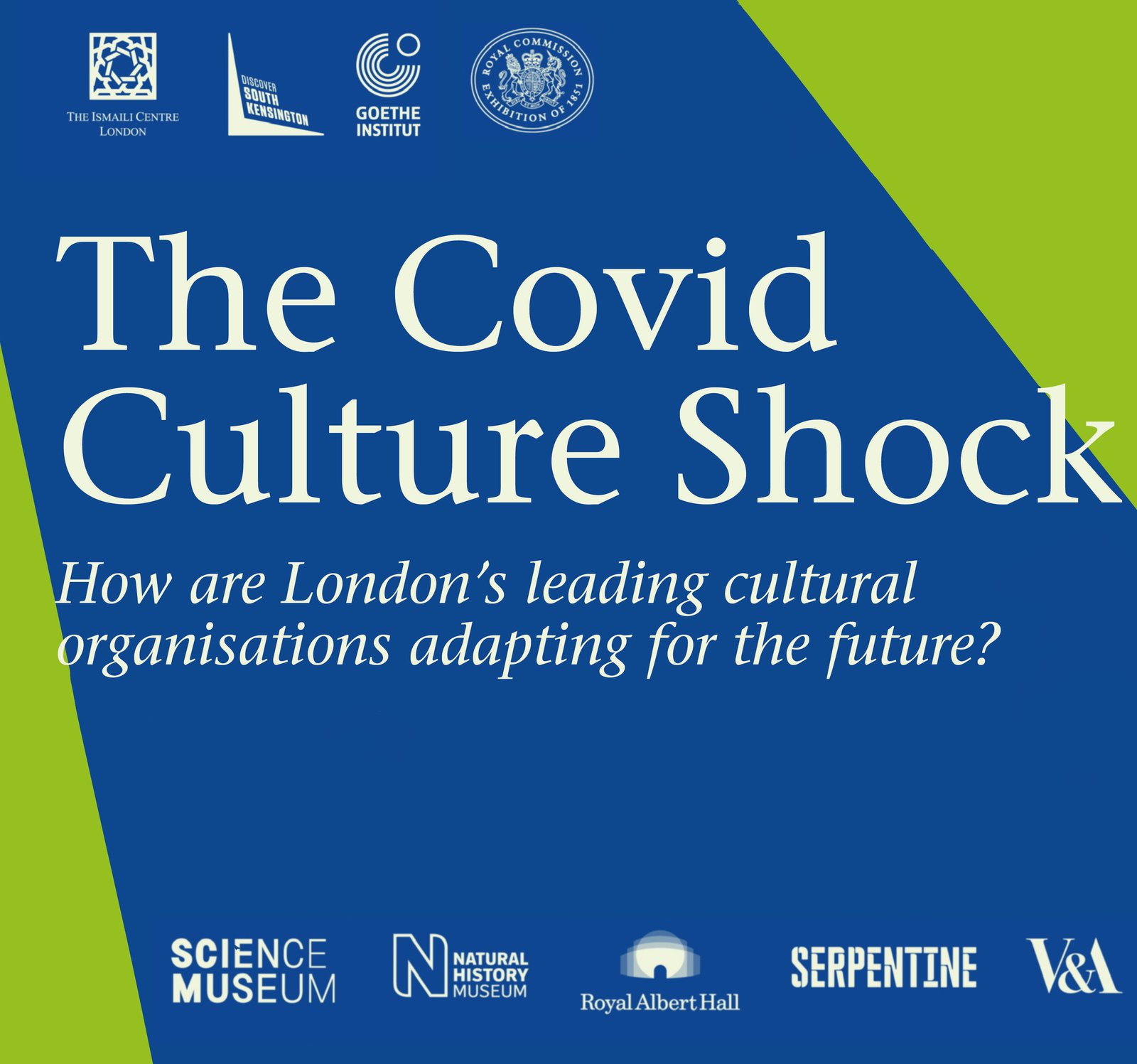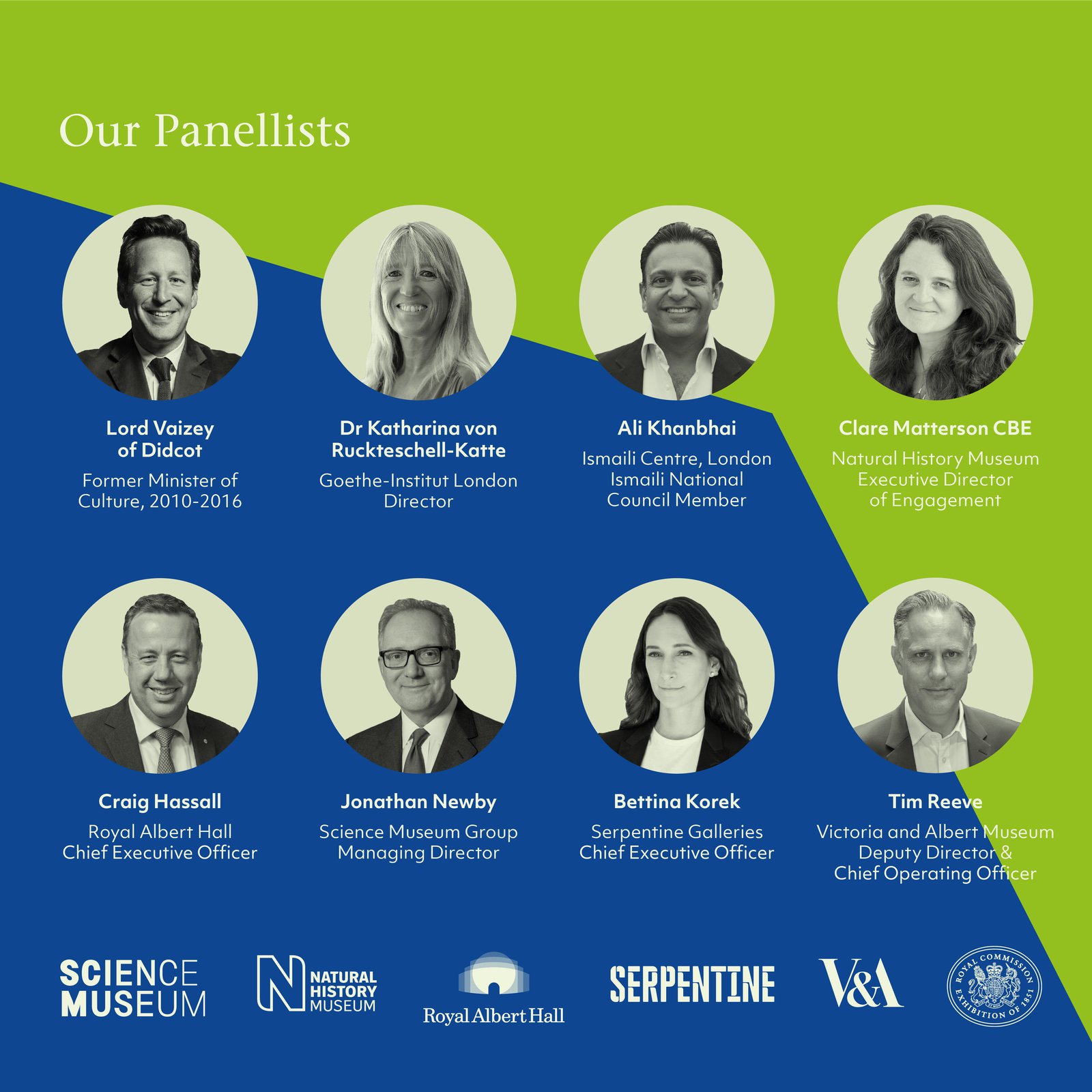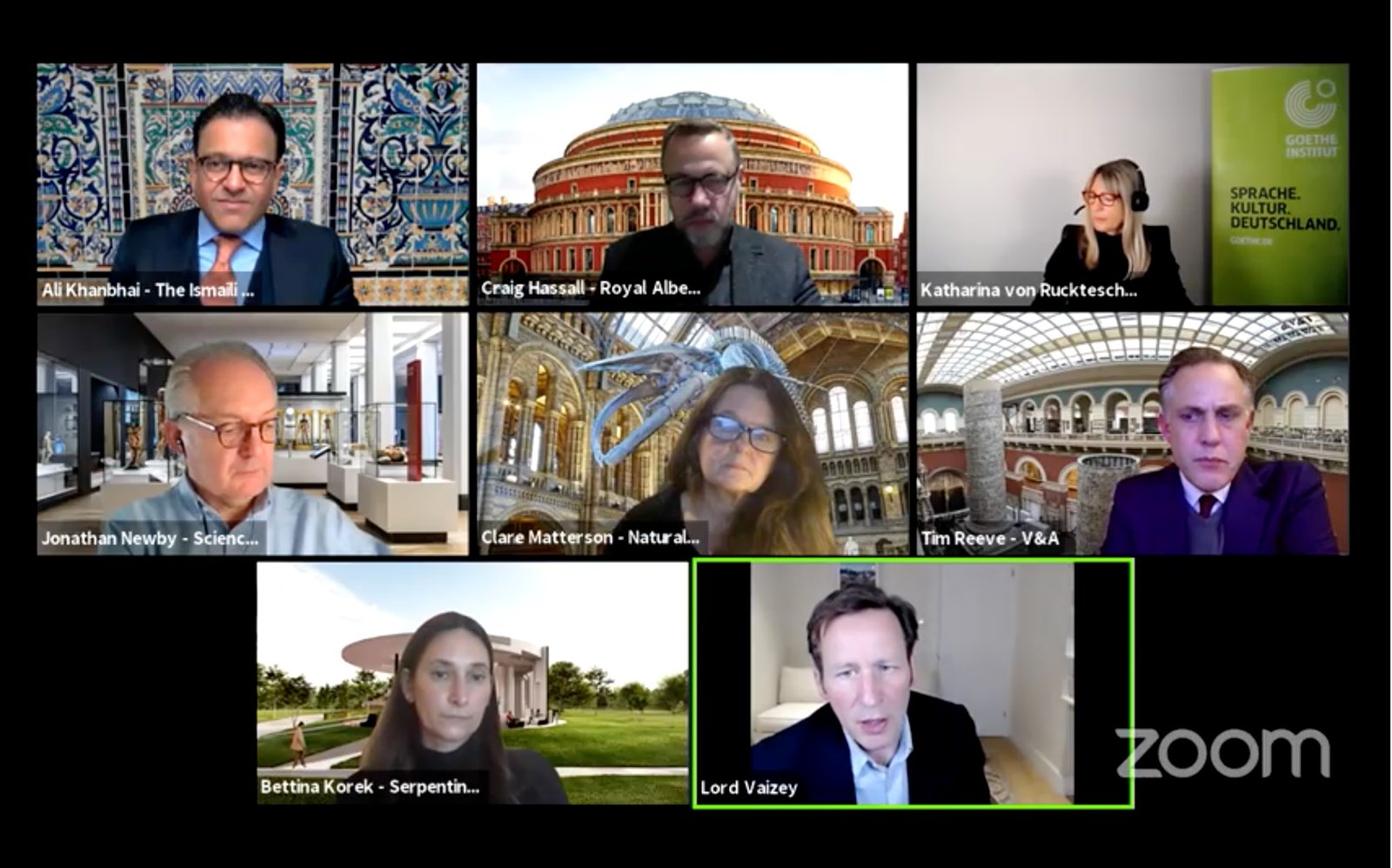
On 16th December 2020, Covid Culture Shock, hosted by the Ismaili Centre London, brought together leading voices from South Kensington’s world-renowned art and science district, featuring the Royal Albert Hall, V&A, Natural History Museum, Science Museum, Serpentine Galleries, Ismaili Centre and the Goethe-Institut London. It was chaired by former Culture Minister, Lord Vaizey.
The Covid pandemic sent shock waves around the world and left venues fighting for survival. But at the same time, it has delivered new partnerships, digital innovations and unforeseen connections with audiences and communities. Together, the panellists explored the legacy of 2020, and how the crucible of Covid can be used to forge a new, thriving, and inclusive future for global culture, as well as the vital role of culture in creating hope and change in a post-Covid world. The issues addressed in the discussion were relevant to cultural leaders around the world.
The discussion was kicked off with a welcome from President Naushad, the President of the Ismaili National Council for the United Kingdom inviting “a dialogue between the arts “in the spirit of South Kensington’s cultural legacy as “an engine of change and a place that is open for everyone.”
Collaboration has always been at the core of how South Kensington’s cultural district operating both at a local and global level. Strong international partnerships have been born out of a community of experts in arts and science. The pandemic has forced change in how these partnerships are shaped. Tim Reeve, Deputy Director & Chief Operating Officer from the V&A shared an example of how they have been able to oversee the installation of exhibitions remotely – a way of working that will continue beyond Covid.
“ There is a reservoir of goodwill within the international network of museums”
Clare Matterson, Executive Director of Engagement at the Natural History Museum, shared examples highlighting how the lockdown has helped forged new relationships with local communities. For example, working together with a local charity, the museum was able to invite local families to the museum as some of the first visitors through the door after the first lockdown – some of whom may never have visited before.
“ Lockdown meant local”
All things digital have dominated 2020 and museums have found themselves competing with entertainment companies in the digital space. Bettina Korek, Chief Executive at the Serpentine Galleries, shared some of their lessons from digital experimentation during the pandemic which included helping artist’s learn about emerging technology and creating new roles in the digital arena.
“Is a digital visitor more logged on than a physical visitor?”
Ali Khannhai from London’s Ismaili Centre elaborated on the benefits of ‘going digital’ which has offered limitless opportunities to connect with people around the globe. Refocusing on digital channels during lockdown has enabled the Ismaili Centre to leverage community volunteers resulting in incredible engagement for a particular project which shared artwork with care homes.
The Royal Albert Hall has been shut from 17th March, through to a brief reopening in December. Craig Hassall, the Hall’s CEO, talked about their shift to digital with ‘Royal Albert Home’ – a series of online events with artists performing from home. However, this reinforced what the digital experience cannot achieve – there is no substitute for live performance and the communal nature of being able to share the experience.
The Covid pandemic has had a huge financial impact on so many sectors and the question of whether culture can survive the shock of Covid was raised. Jonathan Newby, Managing Director of the Science Museum Group, shared an overview of the massive financial hole that Covid has left for them – being 50% funded by the Government and 50% self-generated through events, paid exhibitions, e-commerce etc –the latter having largely plunged to zero. Fund raising has stalled too. This has resulted in significant cost cutting. But on a positive note, when the museum doors reopened between July and October, visitors returned and spent proportionately more than pre-Covid which gives confidence to the team to generate more income when doors finally remain open. There have been opportunities to develop hybrid corporate events too. E-commerce has had a boost as visitors look for strong brands to engage with and buy from – recognising the need to support our cultural venues rather than giant online retailers.
“Visitors are looking for strong brands to support”
The Goethe-Institut London is in a vastly different position – the German Government have been able to cover their losses, but this has not stopped them from lobbying for artists who found themselves unable to perform anymore.
2020 has also been the year when Black Lives Matters gained greater prominence, raising questions for all sectors. Cultural organisations around the world are responding to the challenge to improve equality. Dr Katharina von Ruckteschell-Katte, Director of the Goethe-Institut London, shared how they have been able to include new voices from all over the world and democratise participation. The V&A have also seen how Covid has created space for long overdue conversations which is helping to create a broader range of perspectives, reaching out to new and wider audiences.
Rounding off the discussion, the panellists briefly highlighted the challenge of responding to the climate emergency. The Science Museum has recently announced a major focus on sustainability for their 2021 public programme reinforcing a commitment to engaging its physical and digital audiences with science and solutions to the urgent challenges facing our planet. The Museum has also committed to a series of initiatives including tree planting, biodiversity, cutting carbon emissions and installing solar panels. Meanwhile the Natural History Museum’s latest blockbuster exhibition, Fantastic Beasts: The Wonder of Nature aims to engage audiences with reality of animal extinction at the end of the experience.
“ Next year’s programme is about solutions for the Science Museum – technological and scientific and how it can deliver us from the deep perils of climate change.”
In 2020, Covid has driven digital innovation enabling access to new audiences and ways of working and there has been a growing appreciation for local communities and partners. The growing need to collaborate has been highlighted as our best chance to solve financial, social and environmental challenges.
To see the debate in full, you can watch it on demand via Ismaili TV, here.


